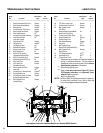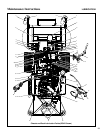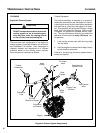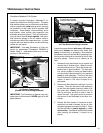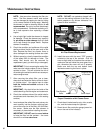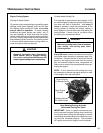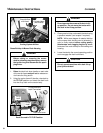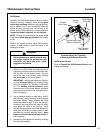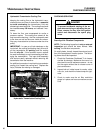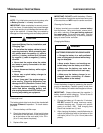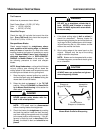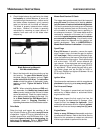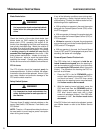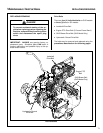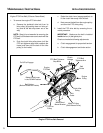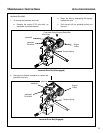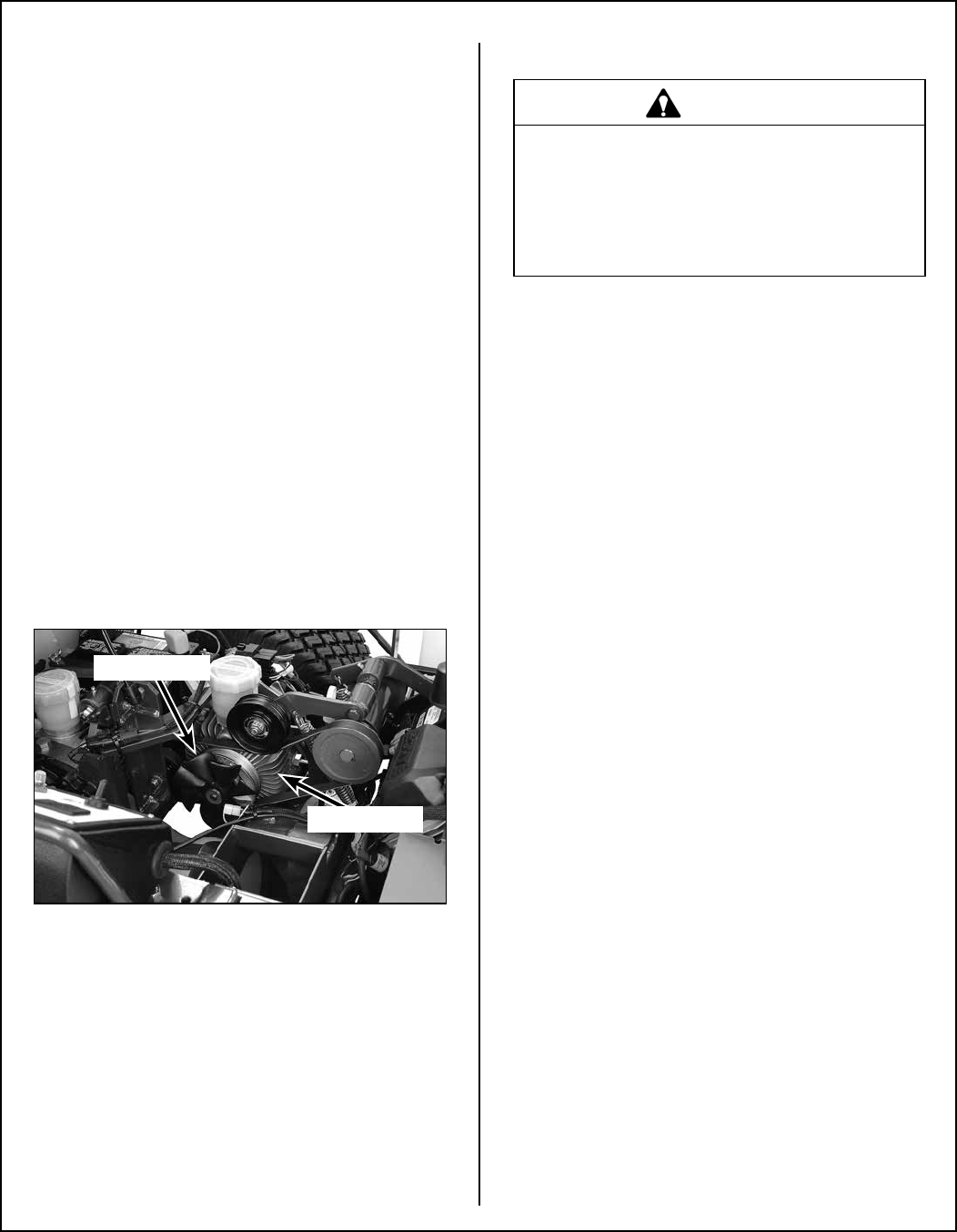
Maintenance Instructions
CLEANING/
CHECKING/SERVICING
66
Hydrostatic Transmission Cooling Fins
Keeping the cooling ns on the hydrostatic trans-
missions clean and free of obstruction is essential
to avoid overheating the transmission uid and
shortening transmission life. The cooling ns should
be checked every 100 hours; and cleaned if nec-
essary.
To clean the ns, use compressed air and/or a
pressure washer. The cooling ns extend all the
way around the housing -- the ns underneath need
to be clean as well as the more visible ns above.
Also, pay close attention to the area under the drive
pul ley.
IMPORTANT: In case an oil leak develops on the
input shaft, the cooling fan blowing dusty air and oil
on the transmission will quickly pack the cooling
ns with oily dirt. If this condition occurs, replace
the seal immediately to avoid overheating and dam-
aging the transmission. The input shaft assembly
and seal are easily replaced without removing the
transmission from the machine.
An additional procedure in maintaining transmission
cooling is to inspect the cooling fans. Replace the
fan(s) if blades are missing or damaged.
Cooling Fan
Cooling Fins
Hydrostatic Transmission Cooling Fins
CHECKING/SERVICING
DANGER
To prevent accidental starting of the en-
gine when servicing or adjusting the ma-
chine, remove the key from the ignition
switch and disconnect the spark plug
wires.
Security of Air Filtration Components
NOTE: The following inspection is only an exter nal
inspection and should be done without “dis-
turbing” the ltration components.
On a daily basis, visually inspect the external condi-
tion of the complete air cleaner system. The follow-
ing items should be inspected:
1. Check the Donaldson Radialseal™ air cleaner
canister for damage. Make sure the cover is in
place and the cover latches are secure - do not
run the engine without the air cleaner cover in
place and secure.
2. Inspect both air intake hoses for cracks, nicks,
cuts, etc., and check the hose clamps for tight-
ness.
3. Check to make sure the air lter restriction
gauge is in place and hose connections are se-
cure.



